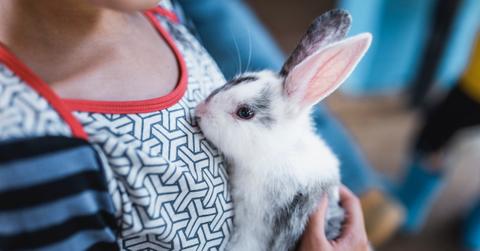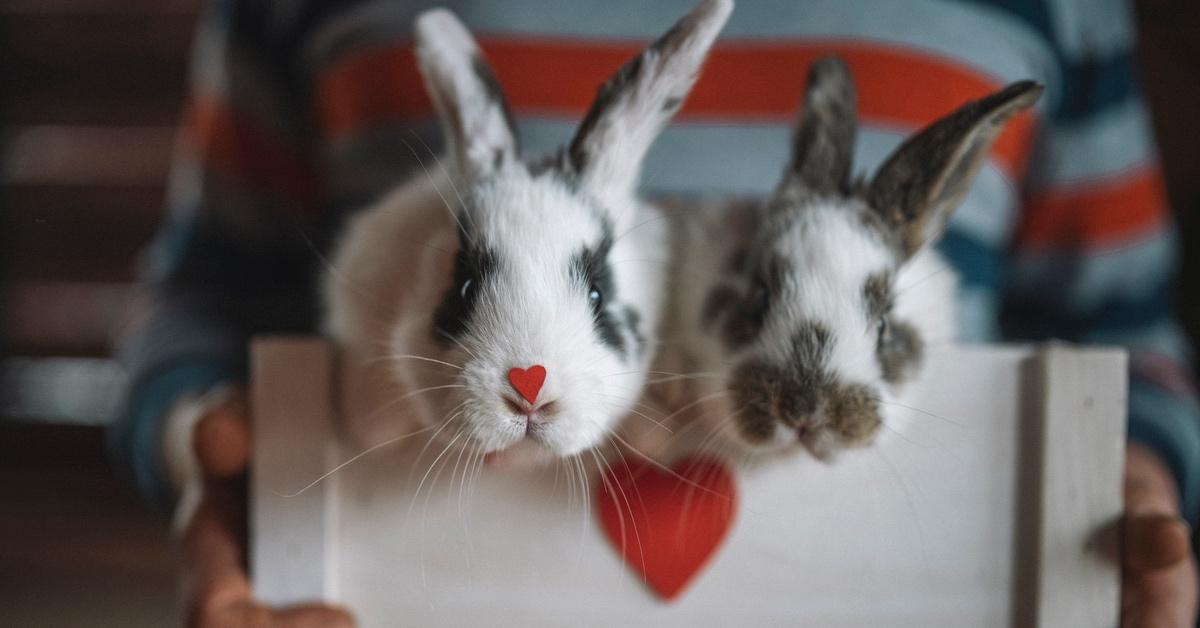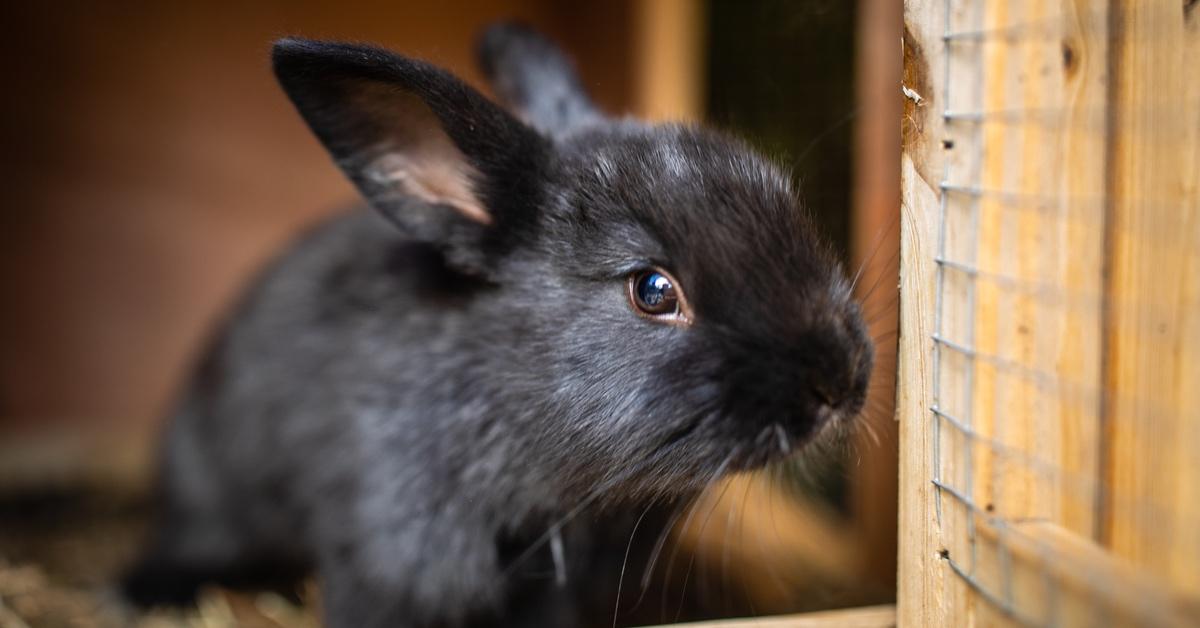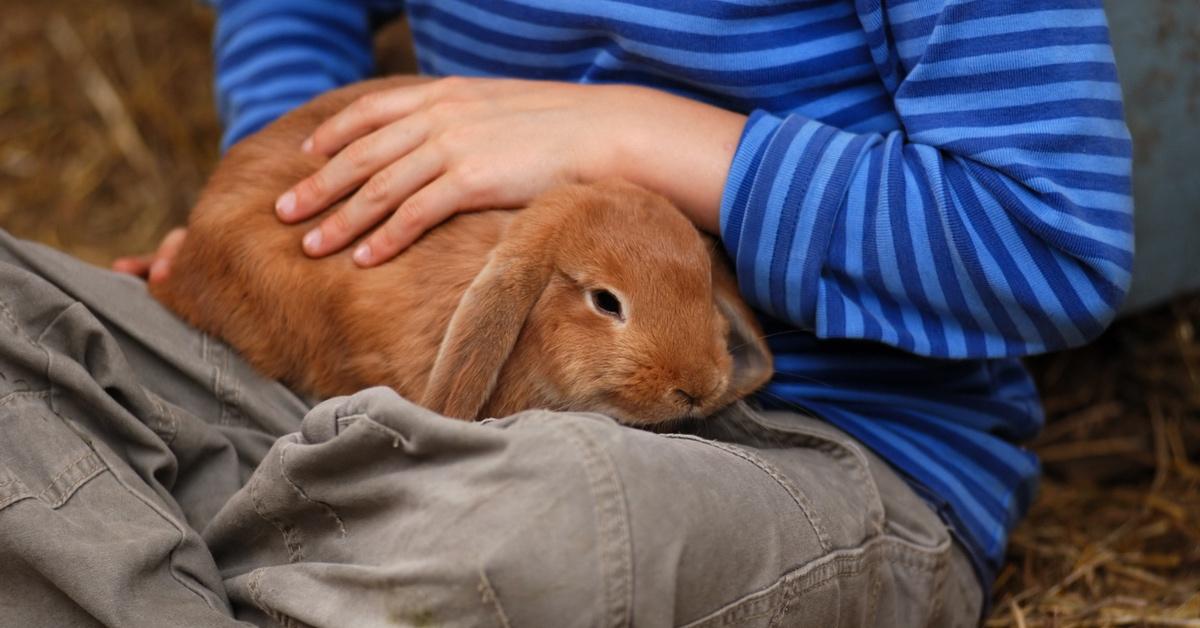Rabbits May Be Adorable, but Please Don't Buy One for Easter
Rabbits can be a fantastic pet. However, if you want to welcome a bunny into your family, make sure to adopt, not shop.
Published March 27 2024, 1:00 p.m. ET

Whether you're adopting your first pet or your fifth, every spring, there's an increase in people purchasing rabbits and chicks, the animals associated with the Christian holiday Easter. And then soon after the holiday, “every year, shelters report an influx of rabbits who were bought for Easter and then discarded once their cuteness or novelty wore off,” Catie Cryar of PETA told City News Service.
Rabbits have a history of being kept as household pets since the Victorian Era, and even earlier as a source of "high-status food," according to Discover Magazine.
Rabbits are small, fluffy creatures that primarily live in hutches indoors, but does that make them the ideal pet for your household? Keep reading for everything you need to know about whether bunnies are actually good pets, and why gifting pets for holidays or birthdays isn't a great practice for your furry friends.

Are rabbits good pets?
According to the American Veterinary Medical Association, an estimated 1.2 percent of all American households in 2022 had rabbits as pets. The American Humane Society argues that rabbits can make good pets, but they do require a lot more maintenance than the average person believes.
Here are a few of the pros and cons of having a rabbit.
Bunnies can be fantastic companion animals — but it's important to learn the pros and cons before adopting one.
Some of the pros of having a rabbit include how quiet they are, how they can be trained to use a litter box for easier cleanup, their distinct lack of a smell (as opposed to smaller pets like hamsters that tend to be stinky), and how long they live, per BunnyLady.
Additionally, rabbits can be social, sweet animals, who will sometimes purr and lick their caretakers as a show of affection. They enjoy being pet and are generally gentle creatures perfect for an equally gentle home.

However, there are many challenges to taking care of a rabbit. PETA emphasizes that rabbit litter boxes will need to be changed at least every other day, and the area around their designated living space will require significant vacuuming.
Not to mention, rabbits are strongly encouraged to be kept indoors because living outside is detrimental to their health, but living indoors also means running the risk of a rabbit destroying your interior walls, appliances, and furniture.
Rabbits, much like other pets, require constant grooming and nail clipping to prevent you, the caretaker, from getting scratched or bitten. Rabbits' teeth are constantly growing, so they also need to be constantly nibbling on toys — and if they don't find proper toys, then they will begin to chew on anything else they can find.
According to Good Heart Animal Sanctuaries, rabbits can also get lonely, so if you work long hours, be prepared to potentially adopt a second rabbit to keep the first company.

How long does a rabbit live as a pet?
Rabbits have lengthy lifespans, although nowhere near as long as dogs or cats. According to the Royal Society for the Prevention of Cruelty to Animals (RSPCA), pet bunnies can live anywhere between 8 and 12 years, but with good care, have the potential to live even longer — that's a big commitment!
Why is giving pets as gifts a bad practice?
If you're thinking about springing a rabbit (or any other animal) on your family as a "surprise" for Easter, Christmas, or any other holiday, you might want to reconsider.
Chewy suggests that if you want to give a pet as a gift, you should first consider whether the family member wants a pet. Pets are a big responsibility, and the person will need to be capable of caring for the pet, which includes medical bills and other expenses. The outlet also advises people to consider whether they have space for a pet to get the proper care they deserve.
If you do want to welcome an animal into your family, make sure you adopt, not shop. By adopting, you are literally rescuing an animal in need and giving them a home, rather than supporting breeders who exist for profit.
This article has been updated.